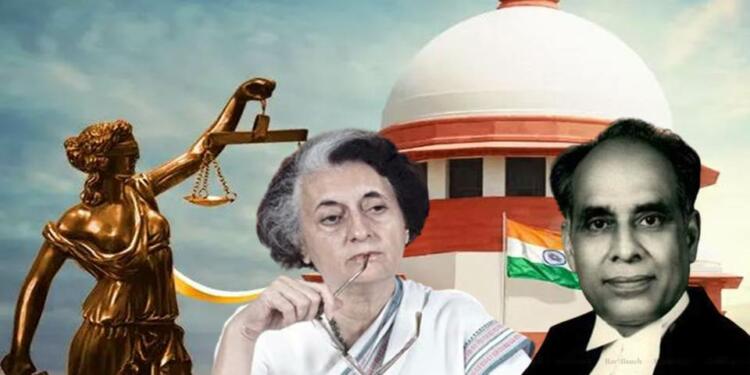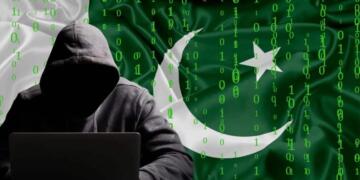Hon’ble Justice H. R. Khanna is remembered as a “crusader against injustice.” His most valuable contribution to the populace came at the time of emergency in 1975, when darkness had engulfed personal liberty.
Owing to his exemplary service, he is considered the epitome of justice and a role model for present and future judges in a constitutional democracy. His incredible journey as a judge is an exhibition of magnificent pronouncements that support the noble founding fathers of the Constitution.
Our country is a democracy that follows the Rule of Law. However, the phase from 1975 to 1977 is considered to be the darkest phase of our democracy. It was during this time that the government functioned as an autocratic polity.
Under the leadership of former Prime Minister Indira Nehru Gandhi, the populace was subjugated to second-class citizenry. The voices of dissent were mercilessly curbed, opposition leaders were jailed, and journalistic freedom was withdrawn, amongst various other atrocities.
The government machinery was reduced to an instrument for carrying out the barbaric, lopsided dicta of the Nehru-Gandhi family. Amidst all this, the majority of the nation was just a mute spectator with no freedom or liberties.
The dark history of MISA
The ecosystem at the time was full of suspicions, panic, hideouts, and clandestine revolutions. Consequently, thousands of people were taken into preventive detention under the Maintenance of Internal Security Act of 1971 (MISA).
This led to a flood of thousands of Habeas Corpus writ petitions in various high courts for the release of the accused. These petitions were countered by the state on the ground that during the period of national emergency, the citizens could not enjoy the fundamental rights enshrined in the Constitution. That is to say that the basic rights, including the right to life and personal liberty under Article 21, stood suspended as Article 359 was put into effect.
However, the contention of the state was rejected by various High Courts, which took a more progressive approach to dealing with the issue. In numerous cases, the High Courts across the nation declared preventive detention to be bad in law and ordered the release of people detained under the provisions of MISA.
ADM Jabalpur & Ors v. Shivkant Shukla
The stance of the High Courts in various judgments to strike down the provisions of MISA as violative of the Constitution was challenged in the Supreme Court by the government. However, the Apex Court, in its judgement in ADM Jabalpur & Ors v. Shivkant Shukla, accepted the view of the government by a majority of 4:1.
The majority of 4 judges (Chief Justice A.N. Ray, Justice M. Hameedullah Beg, Justice P.N. Bhagwati, and Justice Y.V. Chandrachud) held that with the proclamation of emergency and the consequent suspension of enforcement of Article 21, the writ for the release of a person under Habeas Corpus cannot be passed by the Court.
Further, no person has any locus standi to move any writ petition under Article 226 before a High Court for Habeas Corpus, or any other writ or order or direction, to challenge the legality of an order of detention in view of Presidential Order dated 27th June 1975.
The isolated dissenting voice in support of the freedom and rights of arrested persons was that of Hon’ble Justice H.R. Khanna. In his dissent, he equated the rule of Indira Gandhi with that of the Nazi regime, which too had been strictly legal. On that day, he single-handedly defended our cherished values and dreams from being trammeled by the forces of tyranny.
Also read: Equality: Muslim Personal Law not excluded from the ambit of POCSO
Cost of fighting Indira Gandhi
However, as the saying goes, with great things come greater responsibilities. The obligation of duty without fear or favour against all odds may come at a great price. For Justice Khanna, the chair of the Chief Justice of India was the price to be paid for going against the will of the Indira regime.
He was superseded by his subordinate colleague, Justice M.H. Beg, for the post of Chief Justice of India by the then Indira Gandhi government in 1977. Consequently, Justice Khanna resigned in protest, which earned him the accolade of “lone crusader of democracy” from the masses for his courageous dissenting opinion.
The most appreciable part of Justice Khanna that every citizen must cherish and imbibe is the unfettered fortitude with which truth and justice should be pursued. It was not that he was unaware of the repercussions, but he still opted to go with the difficult option.
In his autobiography titled “Neither Roses Nor Thorns,” Justice Khanna reiterated what he had told his sister: “I have prepared my judgment, which is going to cost me the Chief Justiceship of India.”
Ultimate victory for Justice Khanna
If there is a classic textbook illustration of the saying, “Truth can be disturbed but not defeated,” it is the tale of Justice Khanna. After more than 45 years of the infamous ADM Jabalpur judgment, Justice Khanna’s unbending integrity and valour have been rewarded. The apex court’s historic verdict in Justice KS Puttaswamy (Retd.) & Anr. v. Union of India & Ors sets aside the majority judgement in ADM Jabalpur.
The nine-judge Bench lastly established an imprimatur of authority to the revered and lauded dissent of Justice Khanna, which has been the shining beacon through the murkiness of our democracy.
In the words of the present Chief Justice, D.Y. Chandrachud, “the view taken by Justice Khanna must be accepted, and accepted with reverence for the strength of its thoughts and the courage of its convictions.”
That is to say, his remarkable contribution to the history of Indian polity and jurisprudence should be celebrated, and his clairvoyance for the rule of law, human rights, and constitutionalism should be propagated among the citizens.
Support TFI:
Support us to strengthen the ‘Right’ ideology of cultural nationalism by purchasing the best quality garments from TFI-STORE.COM
Also Watch:
https://www.youtube.com/watch?v=deZP195dO9c



























